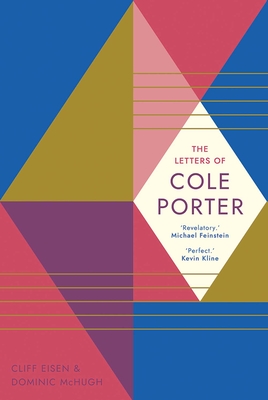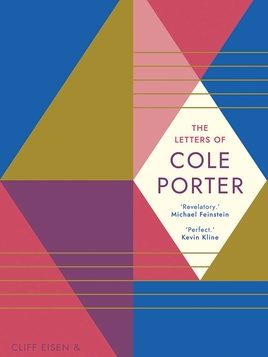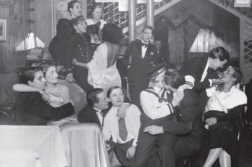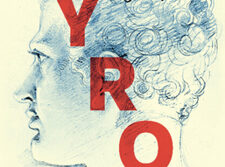 The Letters of Cole Porter
The Letters of Cole Porter
Edited by Cliff Eisen and Dominic McHugh
Yale University Press
662 pages, $35.
THE LETTERS of Cole Porter begins with a note in 1905 from the headmaster of Worcester Academy to Porter’s mother about the impracticality of violin lessons for her son and ends with a letter from Porter’s private secretary describing his death in the Waldorf Towers in New York in 1964. In between are almost 700 pages of letters he wrote to his lawyer, his accountant, his music publisher, the people with whom he was collaborating on a show, lovers, friends, and fans asking how he came to compose a particular song. It spans his years at Yale, his first failures on Broadway, the decade he spent in Europe, his marriage to a society woman eight years his senior, her lifelong struggles with lung disease, his return to Broadway, his ups and downs in show business, his work in Hollywood, his love affairs, the riding accident in 1937 that left him in pain for the rest of his life, and the dark final years after one of his legs was amputated.
The main impression one takes away from this book is that the composer was a very nice man. Almost every letter ends with “Love to both of you,” “All love,” “Lots of love,” “Luck and love,” or just “Love, Cole.” To Sam Stark, a gay friend in Los Angeles, he signs off: “Good-bye Sam. You have no idea how much we love you. Often during the day Linda and I sit together and simply repeat over and over, ‘We love Sam,’ and even as I sign my name tears are dropping because you are so far away.” Tongue in cheek perhaps, but not entirely. The presiding tone is one of affection and unfailing good manners, though the reader seldom sees beneath the surface. Porter did not use his correspondence to ruminate the way, say, Henry Adams did; there are few revelations or glimpses into his intellectual or spiritual struggles, whatever they were.
To give us perspective, the editors have supplemented Porter’s telegrams, thank you notes, and letters with interviews he gave, essays he wrote, letters from other people, and copious footnotes that are so scrupulous they verge occasionally on the nutty. We even get the lists of items he wanted in the hotel suite he occupied in Philadelphia during try-outs (a brief sample: pickles, 24 cans of Pabst Blue Ribbon beer, 3 lbs. of pot roast, linen napkins, cold cuts, witch hazel, milk of magnesia, 2 Tubes Toilet Lanolin, 1 Carter’s Little Liver Powder, 1 Large Nivea Skin Oil). There is also a section from the diary Porter kept while working in Hollywood for the first time (on Born to Dance in 1936) and another that he kept while cruising the Greek Islands on Stavros Niarchos’ yacht in 1955.
The movie diary establishes Porter’s character early on: the contrast between the screenwriters inventing and discarding a new concept every day, and the businesslike Porter merely waiting to be told what sort of song was needed in what scene so he can get to work. Porter could come up with a song whenever it was needed on a moment’s notice. He loved his craft. “I’d rather write than do anything on earth,” he told an interviewer. “I can work anywhere.” Indeed, he told The New York Times: “When this horse fell on me, I was too stunned to be conscious of great pain, but until help came I worked on the lyrics for … a song called ‘At Long Last Love.’”
His incredible discipline allowed him to survive an era when a lot of artists succumbed to booze or burn-out of one sort or another. “Thanks for the story on Scott Fitz. G.,” Porter writes to Sam Stark in 1949 from Williamstown, Massachusetts. “I knew him first when he was a most attractive cock-teaser. Later I knew him with Zelda. They were both exhibitionist drunkards + when I saw them anywhere in Paris, I always made a quick exit for I knew that if I stayed, this would implicate me in a possible police raid. They were all that is tawdry. And the dégringolade of Scott was horrible to watch as he had so much talent.”
As for his own domestic life: “Sturges [a Yale classmate and close friend]is here in the cottage with me. The trees have begun to turn. The skies are spectacular. The cook is pure French with an ass so big that I can’t understand how she keeps her balance. I’m working well, I believe. But Linda is dying. All my love.” The postscript: “Get hold of Robert. He needs nice people like you + Allan. He is so alone. Your devoted, Cole.”
 Robert Bray was a handsome ex-Marine who looked like “a big motorcycle cop,” according to Jean Howard, a friend of Porter’s. Bray, who became an actor in TV westerns, is often mentioned in these letters, but after he left his wife and children, Porter wrote him out of his will. Porter was a man of many contradictions, and one of them was that this composer whose lyrics were loved for their sophisticated hedonism was in many ways an old-fashioned Victorian. In fact, his idols when he started to write music were Gilbert and Sullivan: “I was Gilbert and Sullivan crazy,” he told an interviewer. “They had a big influence on my life.”
Robert Bray was a handsome ex-Marine who looked like “a big motorcycle cop,” according to Jean Howard, a friend of Porter’s. Bray, who became an actor in TV westerns, is often mentioned in these letters, but after he left his wife and children, Porter wrote him out of his will. Porter was a man of many contradictions, and one of them was that this composer whose lyrics were loved for their sophisticated hedonism was in many ways an old-fashioned Victorian. In fact, his idols when he started to write music were Gilbert and Sullivan: “I was Gilbert and Sullivan crazy,” he told an interviewer. “They had a big influence on my life.”
Although Porter was a man with a Victorian upbringing, what runs beneath so many of his songs is sex.
Andrew Holleran is the author of the novelsDancer from the Dance, Nights in Aruba, The Beauty of Men, andGrief.







